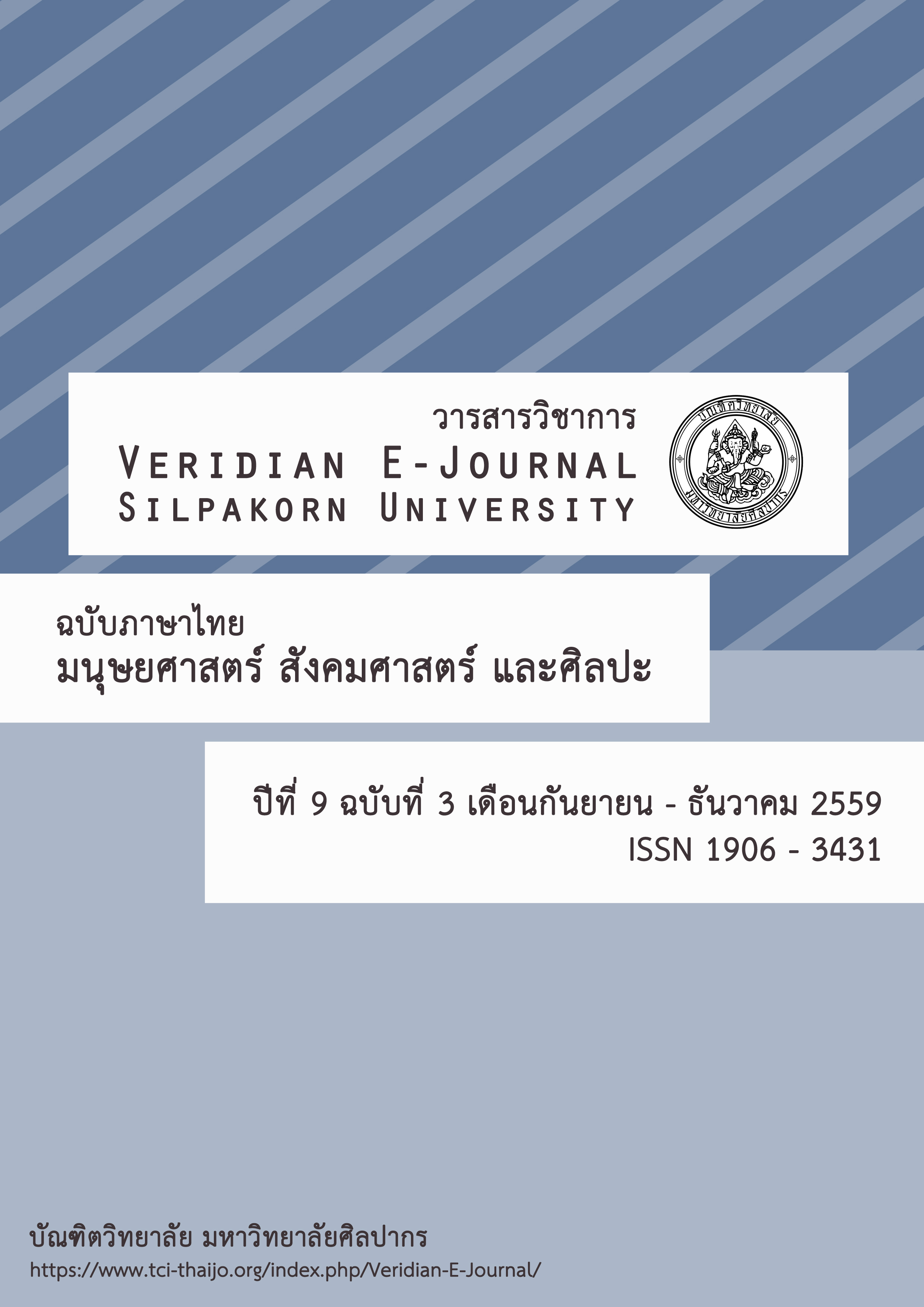การพัฒนารูปแบบการเรียนรู้ตามแนวคิดสุนทรียสาธกเพื่อเสริมสร้าง การบริหารจัดการตนเองของผู้สูงอายุในเขตกรุงเทพมหานคร
Main Article Content
บทคัดย่อ
การวิจัยนี้มีวัตถุประสงค์ 1) เพื่อศึกษาการบริหารจัดการตนเองของผู้สูงอายุ 2) เพื่อพัฒนารูปแบบการเรียนรู้ตามแนวคิดสุนทรียสาธกเพื่อเสริมสร้างการบริหารจัดการตนเองของผู้สูงอายุ และ 3) เพื่อประเมินประสิทธิผลของรูปแบบการเรียนรู้ตามแนวคิดสุนทรียสาธกเพื่อเสริมสร้างการบริหารจัดการตนเองของผู้สูงอายุ ประชากรที่ใช้ศึกษาเป็นผู้สูงอายุในศูนย์บริการสาธารณสุขเขตกรุงเทพมหานคร จำนวน 14,958 คน เครื่องมือที่ใช้ในการวิจัยประกอบด้วย แบบวัดการบริหารจัดการตนเองของผู้สูงอายุ และรูปแบบการเรียนรู้ตามแนวคิดสุนทรียสาธกเพื่อเสริมสร้างการบริหารจัดการตนเองของผู้สูงอายุ ผลการวิจัยสรุปได้ดังนี้ 1)การบริหารจัดการตนเองของผู้สูงอายุจำนวน 400 คน มีค่าเฉลี่ยโดยรวมอยู่ในระดับมาก 2) รูปแบบการเรียนรู้ตามแนวคิดสุนทรียสาธก เพื่อเสริมสร้างการบริหารจัดการตนเองของผู้สูงอายุ พัฒนาจากแนวคิดการเรียนรู้ทางจิตวิทยา 3 แนวคิดประกอบด้วย แนวคิดการเรียนรู้ของผู้ใหญ่ แนวคิดการเรียนรู้จากตัวแบบและการเสริมแรง แนวคิดการจัดการเรียนรู้โดยใช้ปัญหาเป็นฐาน โดยปฏิบัติตามแนวคิดสุนทรียสาธก ประกอบด้วย ขั้นเริ่มต้น ขั้นดำเนินการ ขั้นสรุป และขั้นประเมินผลการเรียนรู้ 3) การบริหารจัดการตนเองของผู้สูงอายุกลุ่มทดลองที่ได้รับการการเรียนรู้ตามแนวคิดสุนทรียสาธก หลังการทดลอง และหลังการติดตามผลสูงกว่าก่อนการทดลอง และสูงกว่ากลุ่มควบคุม อย่างมีนัยสำคัญทางสถิติที่ระดับ.01 และ4) ผลการสนทนากลุ่ม พบว่าผู้สูงอายุกลุ่มทดลองที่ได้รับการเรียนรู้ตามแนวคิดสุนทรียสาธก มีความพึงพอใจต่อการใช้รูปแบบการเรียนรู้ตามแนวคิดสุนทรียสาธกเป็นอย่างมากที่ช่วยเสริมสร้างความรู้ ความเข้าใจ และทักษะการบริหารจัดการตนเอง และช่วยสนับสนุนส่งเสริมให้ผู้สูงอายุกลุ่มทดลองตั้งใจที่จะพัฒนาเปลี่ยนแปลงไปในทิศทางบวก
The purposes of this research were 1) to study self management of aging persons, 2) to develop learning model with appreciative inquiry approach for developing self management of aging persons, and 3) to study the effectiveness of the learning model with appreciative inquiry approach for developing self management of aging persons. The population of this study were 14,958 aging persons of the public health centers in Bangkok metropolis. The research instruments were 1) the self management scale and 2) the learning model with appreciative inquiry approach for developing self management of aging persons. The research results were as follows: 1)The total mean scores of self management of 400 aging persons were high. 2) The learning model with appreciative inquiry approach for developing self management of aging persons included 3 psychological approaches: adult learning, modeling and reinforcement, and problem based learning. Those approaches were integrated with the appreciative inquiry. The learning model included initial stage, working stage, termination stage, and evaluation stage. 3) The self management of the experimental group after participating in the learning model with appreciative inquiry approach and after the follow up were significantly higher than before participating in the learning model with appreciative inquiry approach and higher than that of the control group at the .01 level. 4) Focus group report of the experimental group showed that they were satisfied with the learning model with appreciative inquiry approach. The model efficacy could greatly promote new knowledge, understanding, and skills in self management. The learning model could greatly encourage commitment to an ongoing self management growth of positive change.

